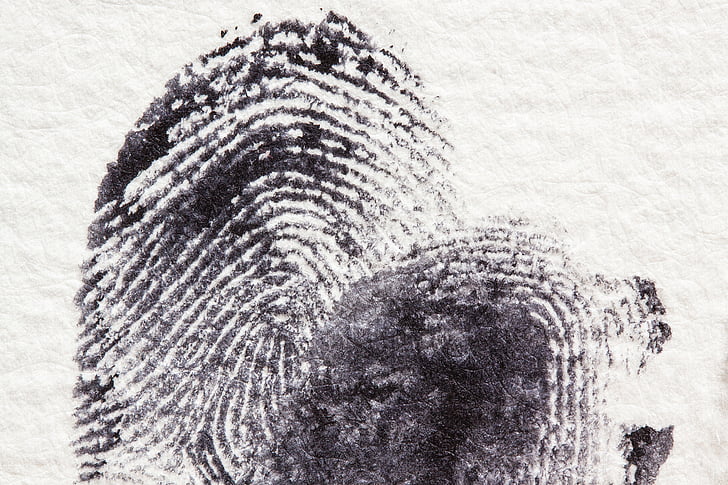Now Reading: Forensic Accounting and Economic Crimes
-
01
Forensic Accounting and Economic Crimes
Forensic Accounting and Economic Crimes
Introduction
Economic crimes and frauds which usually come under the white collar crimes category have been increasing rapidly in the recent past. It is greatly posing enormous challenges to society and the economy which will subsequently affect the nation’s development. In this scenario forensic accounting is of immense significance. Forensic accountants mainly work for solving such crimes and help to deliver justice to the deserved. They work with the law enforcement agencies and their report will finally be presented before the court of law as evidence in a professional and incisive manner.
Forensic Accounting
Forensic accounting can broadly be defined as the application of knowledge and skills of accounting in the field of law. It basically involves fraud investigation and prevention in financial and economic cases. But it also involves cases of partnership disputes, insurance claims, personal claims, business losses, and many more. The field involves wide data collection, analysis and interpretation that provides an accounting analysis that is appropriate for the court that forms the basis for discussion which will ultimately help in resolving the dispute and deliver justice. The definition found within “Forensic Accounting” book by ‘Hopwood,Leiner,and Young’ is as follows:
“Forensic accounting is the application of investigative and analytical skills for the purpose of resolving financial issues in a manner that meets standards required by courts of law. Forensic accountants apply special skills in accounting, auditing, finance, qualitative methods, certain areas of the law, research and investigative skills to collect, analyze and evaluate evidential matter and to interpret and communicate feelings”
A clearer definition was given by Crumbley, Heitger and Stevenson Smith in their book ‘Forensic and investigative accounting second edition’ says that Forensic accounting is the use of accounting for legal purposes. Their initial discussions gave the following discussion which is as follows:
“Forensic accounting is the action of identifying, recording, settling, extracting, sorting, reporting, and verifying past financial data and other accounting activities for settling current or prospective legal disputes or using such past financial data for projecting future financial data to fettle legal dispute.”
A brief History
The term forensic accounting was introduced in 1946 by Maurice E Peloubet .The term was coined in his essay titled ‘Forensic Accounting’, It’s a place in today’s economy. This discipline was widely used in World War 2 by various government agencies around the world. The formalized procedures and practices in the area of forensic accounting came into being in 1980’s.A number of studies and academic articles were published during this era. The earlier history of this field dates back to about 3500 BC. The first recorded history of forensic accounting in India is credited to Mauryas. References to this can be found in Kautilya’s Arthashastra.The modern versions of forensic accounting originated and grew as a separate area of accounting during the second half of 20th century. Now it has become as sub-specialized area of the accountancy field which applies its knowledge and principles in the field of law.
Skills required
“Forensic accountant inhabit a cloak and dagger corner of the accounting world. Their job: respond at a moment’s notice when a client spots trouble – anything from procurement fraud to a top executive cooking the books to industrial espionage”
-Justin Pope, Associated press
“You have an external auditor – that’s like a guard dog. May be a bull dog, An internal auditor is a seeing eye dog. A forensic accountant is a bloodhound.”
– Dr.Larry Crumbly, editor-Journal of Forensic Accounting
Forensic accountant must be able to effectively perform and utilize their skills in the two most important areas of forensic accounting i.e. to lead the financial investigation and to work as expert witnesses in criminal and civil cases which have financial frauds involved in it. Being the key people in fraud investigation they must have the skills to apply the knowledge of the accounting system, internal controls and must have the skills to trace the flow of funds into, through and out of the organization. They are also responsible to provide an opinion which should be independent, unbiased and objective in nature. As their primary duty also includes working as an expert witness before the court of law they must also have knowledge about the court proceedings and proper scientific and concise answers or explanations to questions which may be asked by the court.
Other skills which are required by a forensic accountant includes analytical skills, detailed oriented approach, effective communication skills, detailed-oriented approach, interviewing skills, creative thinking and problem solving skills. Since all the information is stored and created electronically, good knowledge about the information technology and computers are also essential. Nowadays computer forensics and forensic accounting goes hand in hand.
Process
Each forensic accounting work is unique and require unique set of processes to resolve the case. Each work has to be analyzed and done in the manner in which the particular case demands. However, majority forensic accounting cases will include some general processes which are as follows:
· Meeting with the client: To get clear understandings regarding the issue, and facts, meeting with the client is done as a preliminary process of forensic accounting.
· Conflict check: As soon as the parties are established a conflict check is done.
· Initial investigation: Prior to the detailed investigation process, an initial investigation is done which will be useful for the subsequent planning and clearer understanding of the issue.
· Preparation of an action plan: Based on the knowledge of information received from the meeting with the client and initial investigation an action plan is prepared which will be useful for determining the objectives to be attained and the methods to be followed for conducting the investigation.
· Obtain available evidences: Depending on various cases all the available evidences are collected available in different forms.
· Analysis: Based on the nature of the assignment or work concerned a detailed analysis of the case is performed which may include tasks like quantifying the economic losses, studying the transactions carried out, assets tracing, carrying out present value calculations, sensitivity analysis, utilizing computer applications and information technology, etc.
· Report preparation: Summary of all the findings obtained as the result of the previous processes are then made in the form of a report which will then be handed over to the investigating officials to submit before the court of law in a concise and professional manner.
Applications and fields of activity
Major applications of forensic accounting usually includes fraud investigations, insurance claims, and negligence cases. But there are various other areas in which the skills of forensic accountant is used. Some of the wide areas where forensic accounting is used are ;
· Fraud examinations: The most important and widest area of activity by a forensic accountant is in the area of fraud investigation. They work to provide necessary accounting skills which can help the investigation in solving the crime. They often work to prevent frauds from occurring and help the organization to avoid potential risks and frauds from occurring. Once the fraud has been identified by a forensic accountant, he/she works to determine the of fraud that has committed, who has committed it, how was it committed, how long the fraud has remained and other areas which will help the forensic accountant to resolve the matter.
· Insurance claims: The amount of claim that the client is going to receive from the insurer must be determined in cases like insurance claims. The ‘coverage’ can be determined by a detailed review of the insurance policy. Evidences are then gathered to support the amount of loss and provide the claim to the clients.
· Economic loss calculations: Losses happen in almost every organization due to many factors, and they must properly be quantified and analyzed to have a concise view of the economic losses, and also to take necessary precautions from potential risks of losses. The calculations may then be used by the organization, and the client for further proceedings.
· Professional negligence: Professional negligence cases usually have two different perspectives. They are technical, where there can be some violations to the generally accepted rules of accounting and loss calculations.
· Family and matrimonial disputes: Family and matrimonial disputes usually involves funds tracing, asset recovery and quantification, forensic accounting intelligence and reviews. When it is a case of matrimonial dispute where a divorcing couple whose assets are shared in accompany or partnership, forensic accountant can value the assets and do the settlements.
· Motor vehicle accident claims/personal injury claims: Economic damages and losses are properly and effectively be claimed by a forensic accountant in cases of motor vehicle accidents and other personal injury claims cases. Cases of medical negligence and malpractices often require calculation of economic damages and losses.
Forensic accounting as a fighting tool for economic crimes
Forensic accounting with its wide scopes and applications has proved to be an effective way to fight and reduce the expanding economic crimes in the country which in turn will adversely affect the country’s economic development. Economic crimes are in fact a great social issue whose consequences are least aware of or least concerned by the public. Economic crimes are generally non violent criminal and unlawful activity which usually involve unlawful conversion of one’s property for another one’s personal wealth and benefit either by a person or a group of persons in an organizes manner thereby violating the existing norms and legal regulations. Forensic accounting is really essential to criminal investigations in economic crimes as it’s main objective is to gather and assemble financial evidences to help the legal system to punish the offenders to render justice to the victims and deserved. Crimes which are committed for financial gain requires the elements of forensic accounting to effectively and concisely carry out the investigation process. Sometimes cases can also happen in which financial charges may be the only feasible options to punish the offenders based on circumstantial evidences. Forensic accountant determine the existence, nature, and to what degree or extend the crime has been committed. Proper and systematic use of forensic accounting techniques and skills can lead to the prevention of future frauds and potential risks. Also they can assist the law enforcement agencies with cross-border investigation in identifying those who commit these crimes and assist in the asset forfeiture process.
Conclusion
Economic crimes and frauds have serious negative impact on country’s development and economic progress. Current situations like increase in online financial fraud cases, breakdown of regulation in various fields of finance, economics and taxes, advancements in technology to easily commit the economic crimes, etc it has become necessary for the nation to have professionally skilled forensic accountants to save the country’s wealth and contribute to the economic development of the country.
References
· Manning George A, (2011) Financial Investigation and Forensic Accounting (3rded). New York:Taylor and Francis Group
· Silverstone Howard,Sheetz Michael. (2007) Forensic Accounting and Fraud Investigation for Non-Expert (2nd ed). Canada:John Wiley and Sons
· Silverstone Howard, Sheetz Michael, Pedneault Stephen, Rudewicz Frank. (2012) Forensic Accounting and Fraud Investigation for Non-Experts(3rded). Canada:John Wiley and Sons
· Rechtman,Yigal.M. (2020,April 07). The Past, Present, and Future of Forensic Accounting. Retrieved from https://www.cpajournal.com/2020/04/10/the-past-present-and-future-of-forensic-accounting/
Forensic Accounting. (nd). Retrieved from https://www.accaglobal.com/an/en/student/exam-support-resources/professional-exams-study-resources/p7/technical-articles/forensic-accounting0.html#:~:text=The%20major%20applications%20of%20forensic,should%20claim%20from%20the%20insurer.









